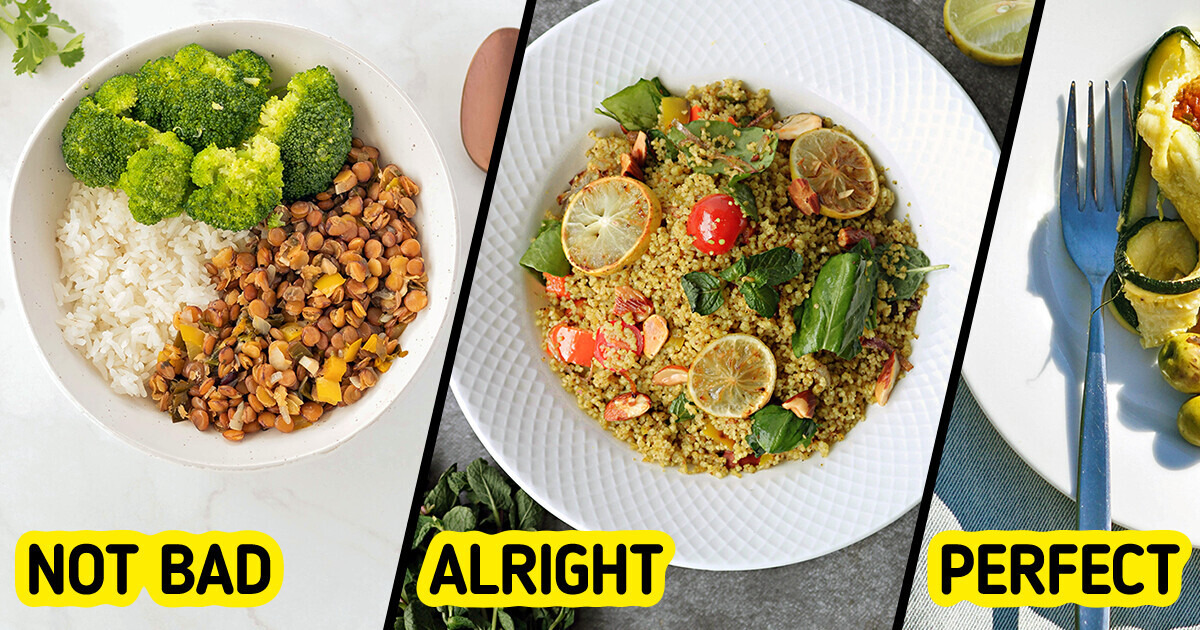10+ True Events That Get Creepier the More You Read


As the effects of climate change become increasingly evident, it's more important than ever to consider the environmental impact of our diets. The food we consume not only affects our health but also plays a significant role in the health of our planet. By making mindful food swaps, we can reduce our ecological footprint and support a more sustainable future. Discover how these easy changes can make a big difference.
Transporting food across long distances requires a lot of energy and contributes to carbon emissions. Opt for seasonal and locally grown produce to reduce the environmental impact. Plus, local produce is often fresher and more flavorful.
Dairy farming is another major source of greenhouse gases. Consider switching to plant-based milk alternatives such as almond, soy, or oat milk. These options are not only better for the environment but also offer a variety of flavors and nutritional benefits.
Refined grains like white rice and white bread require more processing, which consumes more energy. Whole grains such as brown rice, quinoa, and whole wheat bread are more sustainable choices. They also provide more fiber and nutrients.
Overfishing is depleting our oceans and harming marine ecosystems. Choose sustainable seafood options certified by organizations like the Marine Stewardship Council (MSC). Alternatively, consider plant-based seafood alternatives that mimic the taste and texture of fish.
One-third of all food produced globally is wasted, contributing to unnecessary carbon emissions. Plan your meals, store food properly, and use leftovers creatively to minimize waste. Composting food scraps can also help reduce your environmental impact.
Organic farming practices reduce the use of synthetic pesticides and fertilizers, which can harm the environment. Regenerative agriculture goes a step further by improving soil health and sequestering carbon. Look for products labeled as organic or regenerative.
Processed snacks often come with excessive packaging and require more energy to produce. Opt for whole foods like fruits, nuts, and seeds as snacks. These options are healthier for you and the planet.
Reducing meat consumption, even for just one day a week, can have a significant impact on the environment. Participate in Meatless Mondays by enjoying plant-based meals. This small change can lead to big benefits for the planet.
Fair Trade certification ensures that products are produced sustainably and that farmers receive fair wages. By choosing Fair Trade products, you support ethical and environmentally friendly practices.
If you’ve made it this far, it’s clear you care about the planet. Here’s an extra tip: while broccoli is often hailed as a superfood, its environmental impact isn’t as green as you might think. Broccoli requires a lot of water and energy to grow, making it less sustainable. Instead, consider swapping broccoli for more eco-friendly options like quinoa paired with green veggies or lentils with zucchini. These alternatives not only provide similar nutritional benefits but also have a lower carbon footprint, helping you make a positive impact on the environment with every bite.
If you’re still with us, here’s another bonus tip: while cocktail shrimp and avocado are popular choices, they come with significant environmental costs. Shrimp farming often leads to habitat destruction and water pollution, while avocado production requires a lot of water and contributes to deforestation. Instead, consider swapping these for more sustainable options like tofu or lentils. Tofu is a versatile plant-based protein that can be used in a variety of dishes, and lentils are nutrient-dense and environmentally friendly. Pair them with your favorite veggies for a delicious and eco-conscious meal.
Making these food swaps is a simple yet powerful way to contribute to a more sustainable future. Every small change adds up, and together, we can make a big difference for our planet.
Since you're passionate about making sustainable choices, you'll be thrilled to learn about the latest innovation in vegan leather. Two ingenious people have created vegan leather made from cactus, offering a cruelty-free alternative that could revolutionize the fashion industry. Check out their story from here.











